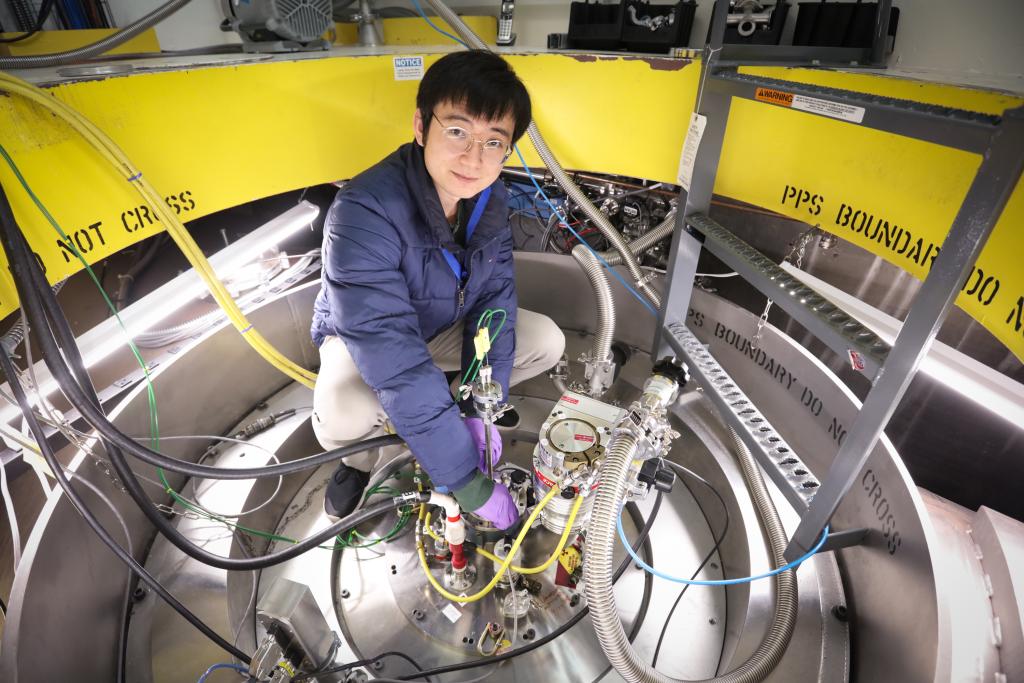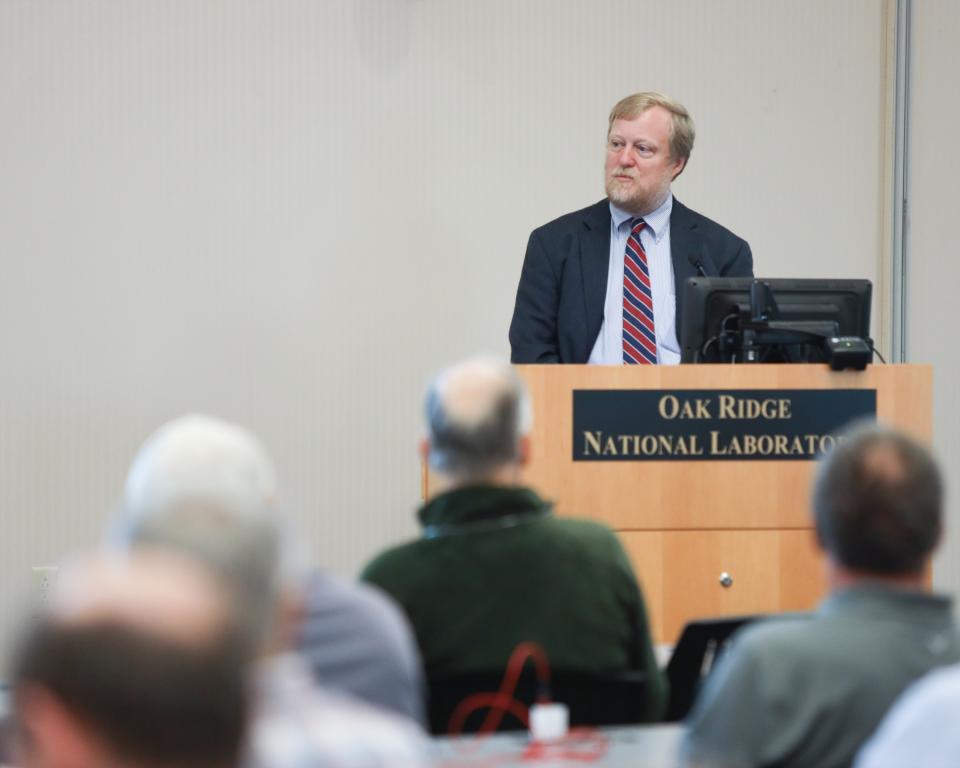Collaboration -- Molten Salt Reactor
Collaborating for Clean Energy
Clean energy means more than just having clean air and water. It means the possibility of a stable, sustainable future for everyone. It seems unlikely that society can expand, modernize, reduce poverty, and be sustained without the clean energy that can be provided by fission and (someday) fusion energy.
Molten Salt Reactors are promising candidates to address these issues and emerge as a modern and impactful clean energy option. That's why ORNL is partnering with other national laboratories, industry, academic and even internationally to forge a path toward MSRs.
Massachusetts Institute of Technology researcher Qingjie Li studies the molecular structure of molten salts for nuclear energy at ORNL's Spallation Neutron Source. ORNL collaborates with academia, industry, other national labs and international partners to advance Molten Salt Reactor Technology.
Industry
A major difference in the new MSR development effort is that industry is leading the way. Worldwide, more than 10 private companies have active MSR or FHR designs under development using private investment. The first demonstration salt reactors since the MSRE are expected in the US within five years, and commercial plants are planned before the 2030s, in time to help replace the clean energy lost as the existing fleet begins to age out.
DOE Advanced Reactor Demonstration Program
The US Department of Energy Office of Nuclear Energy founded the Advanced Reactor Demonstration Program to speed the demonstration of advanced reactors through cost-shared partnerships with U.S. industry.
GAIN
DOE-NE established the Gateway for Accelerated Innovation in Nuclear (GAIN) to provide the nuclear community with access to the technical, regulatory, and financial support necessary to move innovative nuclear energy technologies toward commercialization while ensuring the continued safe, reliable, and economic operation of the existing nuclear fleet. The facilities needed to conduct the necessary RD&D activities are very expensive to develop and maintain and haven't always been easily accessible to industry. GAIN seeks to remove those and other barriers, including streamlining regulatory framework for novel ideas.
National Labs
ORNL partners with other national laboratories on research important to MSR development. Among them:
Argonne National Laboratory
ORNL and Argonne collaborate on thermophysical/thermochemical measurements, database contributions and technology maturation.
Pacific Northwest National Laboratory
PNNL and ORNL work together on off-gas studies.
Idaho National Laboratory
INL's National Reactor Innovation Center partners private companies with national labs to test new nuclear reactors.
David Holcomb speaks at the 2019 Molten Salt Reactor Workshop.
International
ORNL's David Holcomb serves as the US representative on the Generation IV International Forum on Molten Salt Reactors (MSRs), where he is a vice chair of the provisional system steering committee. He also chairs the American Nuclear Society’s working group developing a design safety standard for liquid-fueled MSRs (ANS-20.2) and provides technical oversight of the Department of Energy’s university projects on MSRs.
The United States is one of 14 member countries in the forum and was one of the nine founding members to sign the GIF Charter in July 2001.



